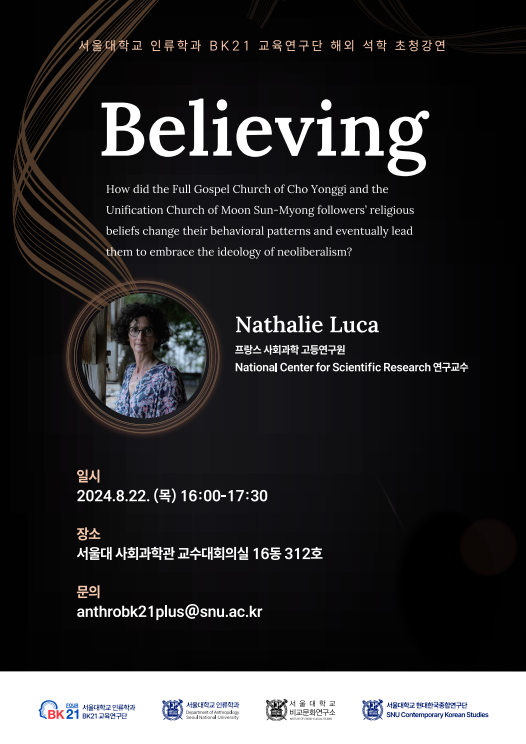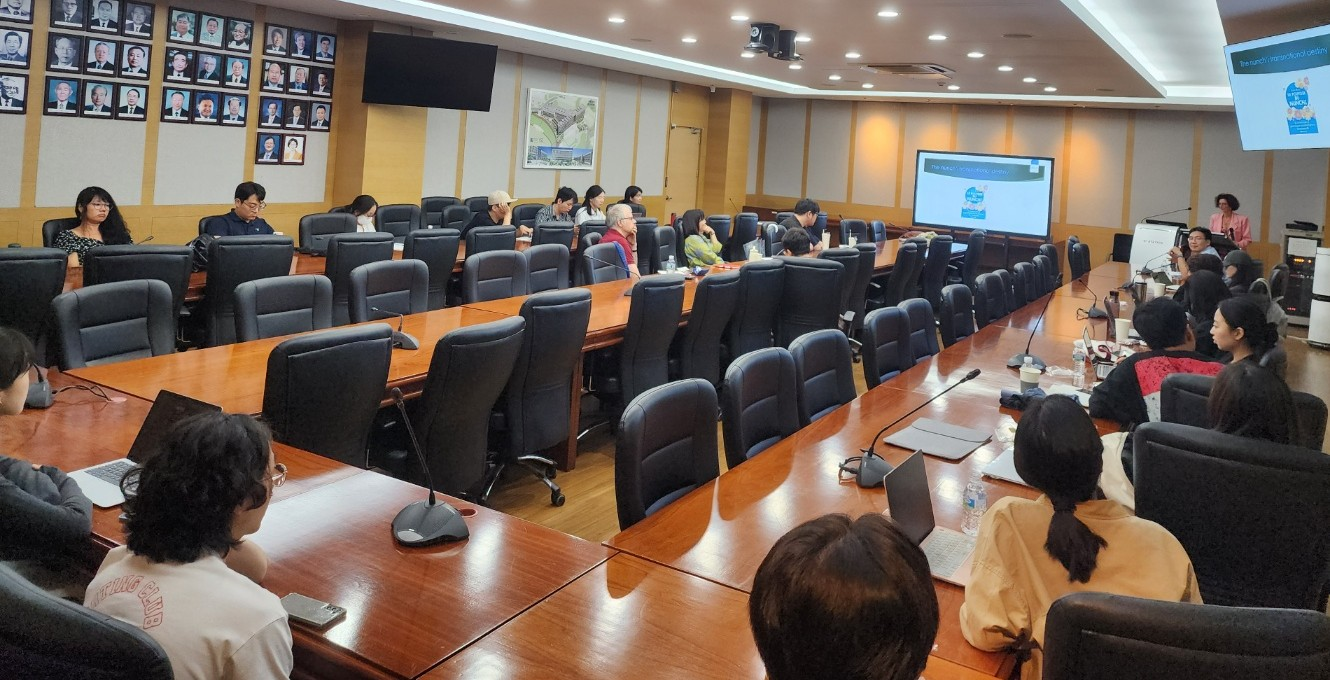
On August 22, with the BK21 Team in the Department of Anthropology, the K-Future Team co-hosted a distinguished lecture by Professor Nathalie Luca (École des Hautes Études en Sciences Sociales, EHESS, France). An anthropologist and filmmaker, Professor Luca has long been recognized for her research on religion, belief systems, and mechanisms of social control in Korea, where she has conducted fieldwork since the 1990s. Her scholarship has provided important comparative-anthropological frameworks for interpreting new religious movements and social belief phenomena in contemporary Korea.

In this colloquium, Professor Luca analyzed why Westerners in the 1980s were drawn to Pastor Cho Yonggi’s Yoido Full Gospel Church and Sun Myung Moon’s Unification Church, while also examining the social and economic transformations that Korean converts to Protestantism expected at the time. According to her, the discourses of these two churches resonated differently across distinct social classes, gradually encouraging believers to internalize neoliberal modes of conduct. The entrepreneurial ethos—emphasizing diligence and personal responsibility—was concretized through practices such as multi-level marketing exemplified by AMWAY. Although the 1997 financial crisis weakened the theology of Korea’s Pentecostal and messianic churches, it paradoxically reinforced the neoliberal orientation of believers’ everyday practices. Professor Luca conceptualized this dynamic as a “believing system,” a process in which culture, religion, economy, belief, and practice interact and are continually reconfigured.
Despite the summer recess, more than thirty participants—including Future Team researchers, fellow scholars, and graduate students—filled the lecture hall. The presentation was followed by about an hour of lively discussion and Q&A.

